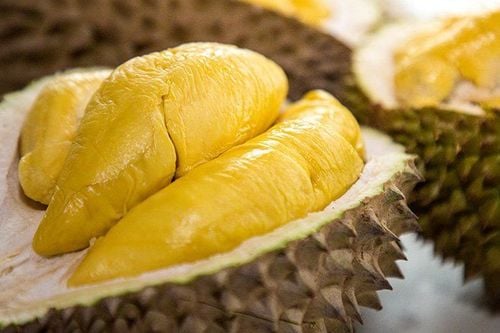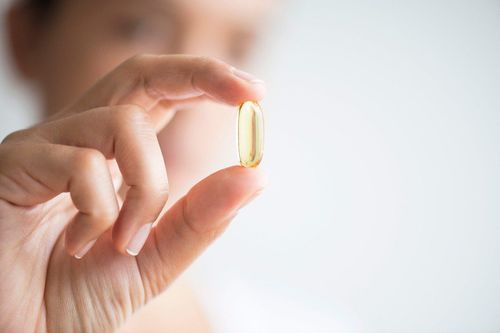This is an automatically translated article.
Durian is a large fruit that has a strong and heavy smell, but is extremely rich in nutrients, such as vitamin C, B vitamins, minerals, healthy fats, fiber and several compounds. other beneficial plants. Durian is often present in many countries in Southeast Asia, typically Vietnam. Eating durian can bring certain health benefits.
1. What is durian?
Durian is known as a tropical fruit, native to Southeast Asia, famous with the nickname "king of fruits". Although the taste of durian is quite heavy and strong, it contains more nutrients than most other fruits.
Durian is usually large in size, has a hard outer shell and has many sharp spines covering the shell. Durian has many different varieties, the most popular being Durio zibethinus.
The fruit can be up to 30cm long and about 15cm wide, weighing 1-3 kg. Durian flesh is light yellow or red. The taste of this fruit can bring about different reactions in each person, from "discomfort" to "addiction".
Durian is widely used in many tropical regions around the world, especially in Southeast Asia such as Vietnam, Thailand, Malaysia and Indonesia.
2. Nutritional value of durian
Durian is a very nutritious fruit, rich in vitamins, fiber along with plant compounds that are beneficial for health. In 243 grams of durian will provide:Calories: 357 Fiber: 9 grams Carb: 66 grams Fat: 13 grams Protein: 4 grams
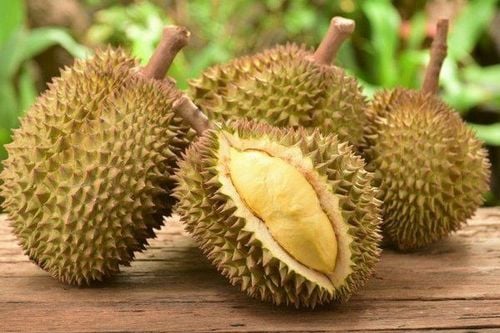
Sầu riêng chứa nhiều chất dinh dưỡng hơn hầu hết các loại trái cây khác
Vitamin B6 : 38% of the DV (Daily Value) Vitamin C: 80% of the DV Thiamine: 61% of the DV Potassium: 30% of the DV Manganese: 39% of the DV Riboflavin: 29% of the DV Folate : 22 % of DV Niacin : 13% of DV Copper: 25% of DV Magnesium: 18% of DV Due to this nutritional profile, durian has become one of the most nutritious fruits in the world. Besides, it also contains beneficial plant compounds such as carotenoids, anthocyanins, polyphenols and flavonoids.
3. How is durian used?
In Southeast Asian cuisine, durian is often selected for processing into sweet or savory dishes. Both the flesh and seeds of the durian are edible, but the seeds need to be cooked before using.
The taste of durian is described as a mixture of flavors such as almond, garlic, cheese and caramel. Its smell is so strong that it is banned from some hotels and public transport systems in Southeast Asia.
Popular preparations from this fruit, including:
Juice Soup
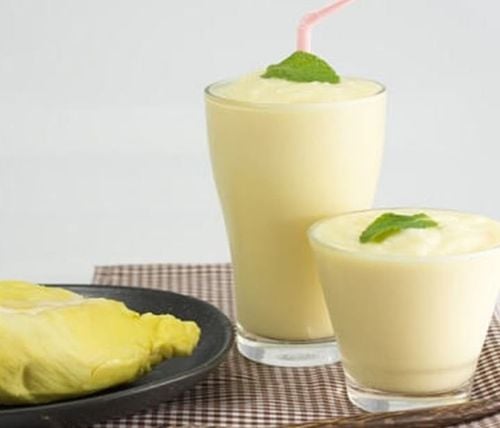
Nước ép sầu riêng thơm ngon bổ dưỡng
Boiled or roasted durian seeds Ice cream, candies or other desserts Side dishes In addition, durian is also applied in traditional medicine and carries some medicinal properties.
4. Health Benefits of Durian
In traditional Malaysian medicine, people have used all parts of the durian tree, including the roots, bark, leaves and fruit to make remedies for various ailments, such as gold. skin or high fever.
Studies have shown that durian can bring some of the following health benefits:
Prevents heart disease: Plant compounds present in durian have the effect of reducing cholesterol levels, preventing heart diseases. arteriosclerosis. Reduce the risk of cancer: in durian contains many antioxidants. These substances have the ability to neutralize free radicals - the main cause of the formation and growth of cancer cells in the body. Specifically, durian fruit extract can prevent breast cancer from spreading. Control blood sugar: The glycemic index (GI) in durian is lower than that of other tropical fruits. Therefore, consuming durian can help reduce blood sugar levels, thereby preventing the risk of diabetes or heart disease. Fights infections: The skin of the durian is a rich source of compounds with excellent anti-yeast and antibacterial properties.
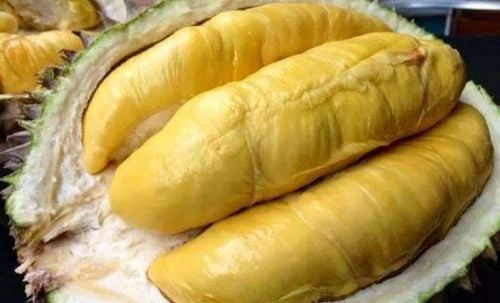
Sầu riêng có nhiều lợi ích với sức khoẻ của con người
5. Some notes when eating durian
Scientists have shown that when using durian in combination with drinking alcohol can cause a number of health problems. Because durian contains compounds similar to sulfur that can prevent alcohol from being completely metabolized, thereby causing blood alcohol levels to rise, causing conditions such as nausea, vomiting, or heart palpitations. To ensure health safety, you should avoid drinking alcohol and eating durian at the same time.
In addition, eating durian can also cause allergic reactions, stomach problems, diarrhea, or bloating. Durian seeds can cause breathing problems for some people.
If you are in the process of losing weight, you should limit eating durian, because it contains 13 grams of fat and 357 calories that can increase weight.
6. How to eat durian
Durian skin is quite hard and has many sharp spines, so you should use gloves when peeling to protect the skin of your hands from injury.
Use a knife and gently peel off the outer skin, then remove the inner flesh of the durian.
Durian can be eaten directly or processed with some other ingredients such as sticky rice.
Durian is also commonly used in processed foods, such as candy or ice cream. However, these products often do not provide many health benefits to the body.
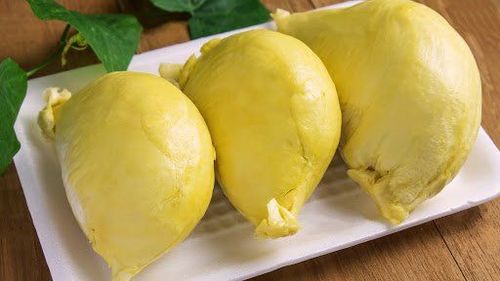
Sầu riêng có thể ăn trực tiếp sau khi đã gỡ phần vỏ bên ngoài
Customers can directly go to Vinmec Health system nationwide to visit or contact the hotline here for support.
Articles refer to the source: healthline.com








